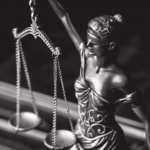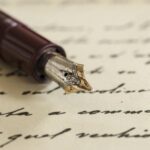
FAQ
answers about forgery and other items
What are your fees?
A set fee structure is in place with a minimum standard retainer in all cases such as forgery or altered documents claims; however, because each case is different, it is best for us to have an initial consultation (complimentary) to discuss some generalities of your case to estimate the overall time and cost involved as well as to provide you with general information on the forensic document examination process and what possible results (opinions) exist in accordance with the internationally recognized standards published by SWGDOC.
Are handwriting and signature comparison results and opinions admissible in court?
Yes. The testimonies of experts in handwriting and signatures have a very long history of over a century of acceptability in the courts as it is very relevant in forgery, fraud, and a myriad of other types of cases in civil and criminal matters.
How long does it take to receive the examination results?
Turn around time depends on many things such as the examiner's current case load (backlog), upcoming court appearance dates, and the volume of documents involved in your case. It is ever-so-important to engage your expert as soon as possible and not wait until one week before results are needed, as chances are your expert may not be able to accommodate your needs.
Do you testify in court?
 Yes. I’ve been court-qualified as a Handwriting Expert and Forensic Document Examiner Expert on numerous occasions in suspected forgery, fraud, and many other civil and criminal cases. It’s been my experience that oftentimes my thorough reports, which thoroughly document all evidence, procedures, limitations, and results, along with supporting citations footnoted from authoritative sources to support my findings, provide insurmountable information which is extremely helpful in the settling of cases prior to the need to proceed to court.
Yes. I’ve been court-qualified as a Handwriting Expert and Forensic Document Examiner Expert on numerous occasions in suspected forgery, fraud, and many other civil and criminal cases. It’s been my experience that oftentimes my thorough reports, which thoroughly document all evidence, procedures, limitations, and results, along with supporting citations footnoted from authoritative sources to support my findings, provide insurmountable information which is extremely helpful in the settling of cases prior to the need to proceed to court.
Can photocopies be used for examinations?
Yes, however, original documents are always the best evidence, but it is recognized that sometimes the original documents do not exist or are otherwise unavailable for examination purposes.
Can you always determine whether or not someone wrote something?
Can you say that something is a forgery?
Technically, no. The crime of forgery, generally, requires knowledge and intent. A properly trained FDE can opine many things, like a signature was probably not written by a person (see SWGDOC Standard Terminology for Expressing Conclusions...) but should not be professionally speaking to a writer's intent – eg. a spouse signing the other spouse’s signature on a document without any intent to defraud. However, because “forgery” is commonly and generally used and understood to mean one person writing another’s signature, a FDE may use this term in media to ensure understanding, generally.
Can you determine someone’s personality or conduct a character analysis based on their handwriting?
No. As a properly trained, qualified, and recognized Forensic Document Examiner, I do not ascribe to such non-scientifically-supported practices.
Can I email my documents to you for a preliminary assessment of my case?
No. This is to protect both our interests as a conflict check must be conducted prior to viewing any documents. Examinations will only commence upon receipt of a signed Retainer Agreement for Expert Services along with the retainer fee.
I have a case but never worked with an expert such as this before. Where do I start?
The easiest way to proceed is to directly contact me and I’ll guide you through every step in the process.
How much known writing (specimens or exemplars) are required for comparing to my document(s) in question?
Generally, 15-20 signature specimens are desired to compare to signatures in question, requiring many more in cases where age, illness, impairment is suspected or known. The requirements vary for extended writings (letters, notes, etc.). In all cases, attempts should be made to obtain known writings as close in date as possible (contemporaneous) to the questioned writings. Consultation can occur to aid in this process.
Where can I obtain known writing or signatures for comparison examinations?
I do have a list containing over 110 sources from which you can obtain known specimens for comparison examinations to suspicious (questioned) writings or signatures which I can send to you. You will be guided during an initial, free consultation in determining what type and how many specimens of known writing is best for your suspected forgery or fraud case.

